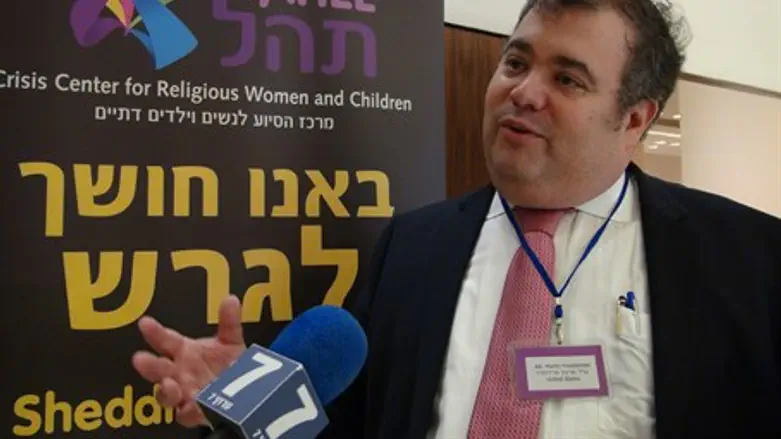
“Not giving a get (bill of divorce according to Jewish law) is abuse of the highest degree,” said Martin Friedlander, a matrimonial lawyer and one of the founding members of the lawyers coalition Yashar.
At the 2nd annual International Conference Against Sexual Violence and Abuse sponsored by Tahel, a lot of positive steps are being discussed to alleviate all forms of sexual violence and abuse, including the Agunah problem. Friedlander shared his plans with Arutz Sheva.
“People are often afraid to ask for help if they have suffered abuse or violence. I think they are particularly afraid due to the community in which they live. People feel that if they admit that it occurred to them then they will lose shidduchim, they or their children won’t be allowed to go to certain yeshivot and they won’t be allowed to walk in the street.” Tahel is trying to put a stop to that line of thinking.
“Tahel is educating people that one needs to open up to the authorities if these issues occur. In New York rabbanim are being educated that the only way to deal with these problems is to go to the authoriites. We [in the Jewish community] aren’t set to deal with that. We can’t take anybody off the street. The ones who can are the authorities.”
Martin said that while hiring lawyers and going through the legal process can be expensive, to combat that aspect which may prohibit some from following through on going to the authorities, organizations should be set up that can help abuse victims hire a lawyer.
Martin Friedlander and members of Yashar (Credit: Eliran Aharon)
Yashar was presented at this year’s Tahel conference, based upon the meeting that took place during last year’s conference.
The idea is to create a group of lawyers from all over the world to help ease some of the problems that matrimonial law presents to abuse victims. “We are hoping to create a pre-nuptial agreement that would be more widely accepted that can help people in different countries. We will also share information so that lawyers and rabbanim from different countries can help learn about what worked in different cases in different countries [and apply it to their own situation].”
The coalition is hoping to hold its first meeting in April and will attempt to prepare a prenup that rabbanim would sign off on, as a step towards solving the agunah issue.